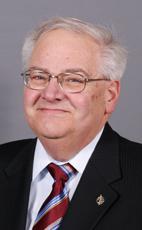Mr. Speaker, recently publicized internal memos have drawn the attention of Canadians to very unethical accounting practices between government departments and Canada Communications Group.
It is incredible that Canada Communications Group would enter into illegal contracts in order to hide money from the scrutiny and accountability of Parliament. We intend to hold the government accountable for this scandalous practice.
The ministers involved have promised a full investigation. We will be watching for the reports with great interest. I am informing the House, as I have informed the ministers, that should this investigation not provide full disclosure I will be calling for further public review before the government operations committee.
Our debt is currently $532,098,154,000 and has grown by $88,000 since I started speaking. We cannot tolerate any more mismanagement of our precious tax dollars.

